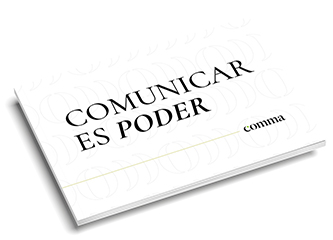I define myself as a pacifist, but in this ocassion I haven’t found a better metaphor to title this post than to use this famous phrase that goes back to the Crimea War. The ‘battle’ to maintain manipulation away in the world of Internet, viral contents and sophisticated ad campaigns has indeed become a matter of a “Thin Red Line”. The line between delivering information with a clear and honest intention -either noticeable or with commercial purposes – and deliberately manipulating the audience has always been too thin, and surrounded by polemic. But I believe that, in 2014, something is different. The public plays now a relevant part in establishing that red line: the audience nowadays has got enough resources and means -and also a responsability- to be well-informed and prepared to receive any information and determine its intention. I’ll explain myself with some examples:
I’ll start with the last Youtube hit, First kiss, the viral that reached 75 million visits in 3 weeks, and caused some offended reactions when people realized it is a campaign for a clothing firm based in Los Angeles. The outraged spectators seemed to consider they had been ‘tricked”, as the characters in the film were in fact actors performing in an advert, and that made the kisses less authentic. People felt manipulated but, really, who did believe that a video starring young attractive people wearing urban fashionable clothes and kissing each other in front of the camera was just a spontaneous and charming ode to love at first sight? If you did think that it was unplanned and unintended maybe you were not paying too much attention, and if you were, congratulations for your candidness. Anyway, does the fact that it is a commercial with professional actors make it less appealing or enjoyable, and a reason to feel defrauded? I don’t think so. Personally, I didn’t like the film the first time I saw it, but I never felt manipulated or considered they were cheating me. However, the film was a complete success, and the clothing brand increased its sales by 14,000%, but; were this people intentionally buying the jeans and shirts, or had they been secretly influenced to do so? Please…
There is another recent example in the Spanish TV programme Salvados, a news show that has become extraordinarily popular in the last years and that addresses some of the most controversial and polemic current issues in Spain. The show broadcasted a special edition dedicated to the anniversary of the failed coup d’etat known as “23-F”, which in 1981 tried to overthrow the recently created Spanish democratic regime. The expectations for this special programme were therefore particularly high, as it promised to reveal the ‘secret truth’ about one of the key moments in modern Spanish history. The documentary turned out to be a false-documentary (or mockumentary), but this was only revealed at the end of the show, after 40 minutes exposing the shocking theory that the coup itself had been staged by a group of political and military leaders in order to stabilize the country and boost the king’s image. The film aimed, according to its creators, to prove how easily the public can -still- be manipulated and it was also a funny and provocative experiment with the audience. “Probably many other times you have been lied about things and you never got to know it; at least we confess we have lied”, was the controversial explanation of director Jordi Évole for the joke.

The reactions in Twitter and other Social Media platforms after the truth was revealed were irated, and although many spectators were delighted about the trick and took it as a joke and an invitation to some critical reflection, many others were outraged by the ruse and felt cheated. Even many of the leading Spanish media were harsh on their criticism, with bitter editorials against what they defined as a “tall tale” or a “fraud”, and condemning the experiment as a bad joke that beat the limits of journalism. Personally, I consider any incitement to reflection as positive, and an experiment like this seeking to challenge the public and make them think should always be desirable. The repercusion has gone even further, and now the Spanish Federation of Journalists is going to investigate if the documentary was against the journalistic professional ethics. Really?!?
Spain is a country that usually blows its own trumpet regarding our sense of humor and our ability to be sarcastic about almost any situation but, obviously, it is not like that.
I refuse to this idea of a passive, vulnerable, manipulated audience that can be easily fooled, and I don’t understand those angry and indignated reactions. I prefer to believe it is a lack of sense of humor, rather than a lack of intelligence. The times of the hypodermical needle are long gone, and the relationship between the media and the audience has grown more complex and sophisticated than ever before: that should also allow different ways and methods in the way we deliver and receive any kind of information. Whether it is an advertising campaign, an experimental provocation with the public or just a different way of telling a story, if the intention is clear and they are not trying to lie to me and make some falseness pass as the truth, why should I feel cheated? My point is that in 2014 the audience should be mature enough to have its own judgement and be critical about what they are watching or reading. It is us as spectators who define that Thin Red Line that separates information and manipulation, deciding what we expect from what we are observing. We have enough tools, knowledge and experience to do so.






Un comentario